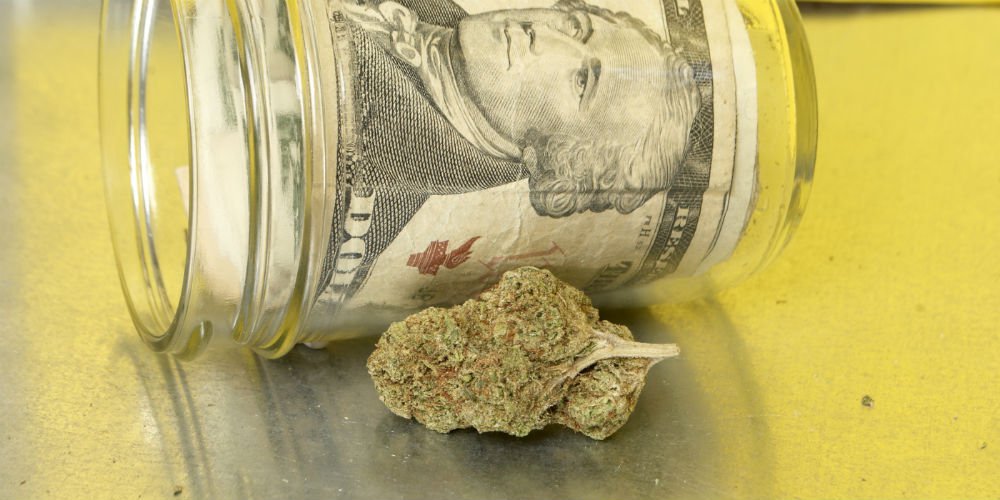While marijuana has been legalized to varying degrees in 33 states (as well as the District of Columbia and Puerto Rico), many financial institutions remain hesitant to offer banking services to marijuana-related businesses (MRBs) because marijuana remains federally illegal.
To address this FinCEN issued guidance in 2014 (BSA Expectations Regarding Marijuana-Related Businesses) that “clarifies how financial institutions can provide services to marijuana-related businesses consistent with their BSA obligations,” so as to “enhance the availability of financial services for, and the financial transparency of, marijuana-related businesses.” However, FinCEN stops short of officially sanctioning marijuana banking, so many banks and credit unions continue to withhold basic depository and lending services from MRBs.
In response, the House of Representatives passed the Secure And Fair Enforcement Banking Act of 2019 (SAFE Banking Act) at the end of last year. The SAFE Banking Act’s intention is to “increase public safety by ensuring access to financial services to cannabis-related legitimate businesses and service providers and reducing the amount of cash at such businesses.” If signed into law it would provide that safe harbor missing from FinCEN’s guidance, thereby encouraging banks and credit unions to open their doors to MRBs. Because the SAFE Banking Act enjoyed strong bipartisan support in the House, many financial institutions have adopted a “wait and see” approach to banking MRBs: “We want to bank marijuana but we’re going to wait until the SAFE Banking Act passes.”
While this seems prudent, I encourage you to reconsider because right now credit unions have a once-in-a-lifetime opportunity to get ahead of the big national banks against which they so often struggle to compete in all other areas.
None of these banks currently offer services to MRBs, but I don’t think it’s because they’re afraid that they would be unable to build a compliant marijuana banking program based on FinCEN’s guidance. Consider that the legal marijuana industry generated upwards of $13 billion dollars in medical and adult-use (recreational) sales in 2019 according to Marijuana Business Daily. The impact that access to that $13 billion market would have on a credit union is very different than it would be for a big national bank. To put this into perspective, according to the NCUA the Q1 2020 total assets held by all federally-insured credit unions combined were $1.64 trillion while JP Morgan alone boasted Q1 2020 total assets of approximately $2.7 trillion per their most recent FFIEC call report. For a national bank there’s not necessarily a compelling reason to assume any additional risk exposure by offering services to MRBs because the risk isn’t worth the reward. They’re content to sit back and wait.
However, I think it’s a safe bet to assume that these banks have programs ready to come off the shelf as soon as the SAFE Banking Act is passed. With their brand recognition, large existing customer base, and geographic reach they’ll be able to dominate the market on day one. So while the big banks sit and wait, credit unions have a chance to get ahead of them by bringing marijuana banking programs to the market. But how can a credit union do this confidently if they feel that the FinCEN guidance alone isn’t enough?
Before this coronavirus pandemic deeply wounded the economy, credit unions were often reluctant to engage with the marijuana industry because there was a fear that MRBs weren’t stable businesses because they could presumably be shut down by the federal government at any time. However, throughout this crisis MRBs have been surprisingly resilient, being officially recognized by state governments as essential businesses that were allowed to stay open while so many other small businesses were forced to close and furlough employees. We’re learning that what many had hoped would be purely temporary closures of those small businesses might well become permanent. In June, MarketWatch drew on Yelp data to estimate that in Los Angeles alone over 11,000 small businesses like restaurants, bars, and shops might never open their doors again. Recent experience shows that MRBs will not only survive, but in some cases thrive, contributing tax revenue, providing employment opportunities, and supporting the work of service providers like plumbers, accountants, and lawyers.
At the same time, states are losing significant tax revenues engaged in the fight against coronavirus at a time when they’re rapidly losing the businesses that would otherwise contribute to replenishing those coffers. However, having designated MRBs as essential they are keenly aware that the businesses have continued to contribute their share throughout this crisis. This has led to a commonly-held assumption that states are going to take advantage of this opportunity and expand their marijuana programs to bring in the one of the few new potential sources of tax revenue. Take for example, John Fetterman, the Lieutenant Governor of Pennsylvania, who was recently quoted as saying “There’s already a thriving marijuana market in Pa. Why not make it legal, why not make it safe and why not make it taxable to help Pa. get back on its feet?” Marijuana businesses will be essential to our economic recovery.
This all comes along at a time that American attitudes towards marijiuana are overwhelmingly positive and politicians that are otherwise bitter partisan rivals on seemingly every other major policy point are ready to work together to expand, or at the very least protect, legal marijuana programs. A 2019 study by the Pew Research Center found that two thirds of Americans were in favor of the legalization of marijuana, and this is the case (to varying degrees) regardless of political party, race, sex, or educational experience. To put it plainly, marijuana is no longer terribly controversial.
There are a lot of reasons to bank the marijuana industry, all of which exist without the SAFE Banking Act. I absolutely understand that it would be ideal for the federal government to offer legal protections for financial institutions that want to bank the cannabis industry, but any credit union that waits until then will have to go toe-to-toe with the big national banks that are going to be ready to hit the ground running. If you want to bank marijuana you cannot afford to wait.







